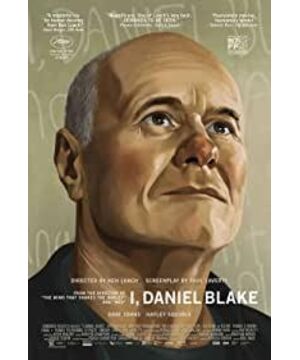It would be too narrow to regard this Ken Rocky movie as a critique of bureaucracy, ignoring the varying degrees of influence of the bureaucracy on different classes. The boss class has capital and channels to evade taxes, but for the working people, cutting off income and government relief is tantamount to a death sentence. Therefore, privatizing public projects and cutting public project funds are equivalent to driving the working class to a dead end. Neoliberalism uses government austerity policies and privatization to erode the meager victories of the working class. On the surface, it reduces the size of the government to reduce its intervention in "personal freedom" ("The government should be small enough for me to throw it in." In the toilet," a politician said), when the financial crisis came, they hurriedly rescued bankers and big capitalists through government allocations, and at the same time exacerbated the symptoms of unemployment and unstable jobs that are characteristic of capitalist society, making public opinion even more unrealistic. Demonize the people who receive relief. The result is that the power of the working class is weakened, workers bite the bullet and accept lower wages, longer working hours and higher prices, and wealth is more concentrated in the superstructure. At its root, the meaning of neoliberalism is political: the exploitation and oppression of another class by one class. This is not a "cannibalistic system" and what is it?
The screenwriter Paul Lavity is a human rights lawyer. Compared with the Trotskyist screenwriter Jim Allen who Ken Rocky often worked with in the early days, he has a bit less cutting edge. This makes Ken Rocky's works in the past ten years to defend human rights and Among class politics, although the latter still dominates. Some people will say that this makes the role of the movie more complicated, but it also makes the movie's criticism of the system deeper, and viewers are likely to fall into the trap of human nature theory in interpretation. An example in "I Am Black" is the social worker who sympathizes with Black: she offered to hand water to Black and assisted Black, who did not understand the computer, to fill out the online application; when Black decided to appeal, she warned him nicely that it would let him Lost the source of income and persuaded him to compromise for completeness. You can summarize her actions in a kind-hearted human nature, but from the perspective of system oppression, this is just the "good" side of the "good police and bad police", and the essence remains the same; its "persuade surrender" approach is objectively unchanged. It is also to dispel the idea of "making troubles" so as to ensure the smooth operation of the system. It can be said that the exploitation system is good at using good people to control good people, and workers oppressing workers, and its behavior is even more arrogant and shameless. As long as the system of exploitation still exists, discussions on class politics will not be outdated, and the slogan of "working class unity" will continue to be shouted.
Ken Rocky is always labeled "Leftist", "radical", and "old and strong (old stubborn)" by film critics in order to avoid discussion of class politics, but class politics is exactly Ken Rocky and majority realism. The director is different. The working class is the majority of society, occupying 99% of what Wall Street claims, but its political issues are always marginalized by film critics who are also trapped in the system. It is ironic when a few issues are written. They should ask themselves: "Which side am I on?"
View more about I, Daniel Blake reviews











